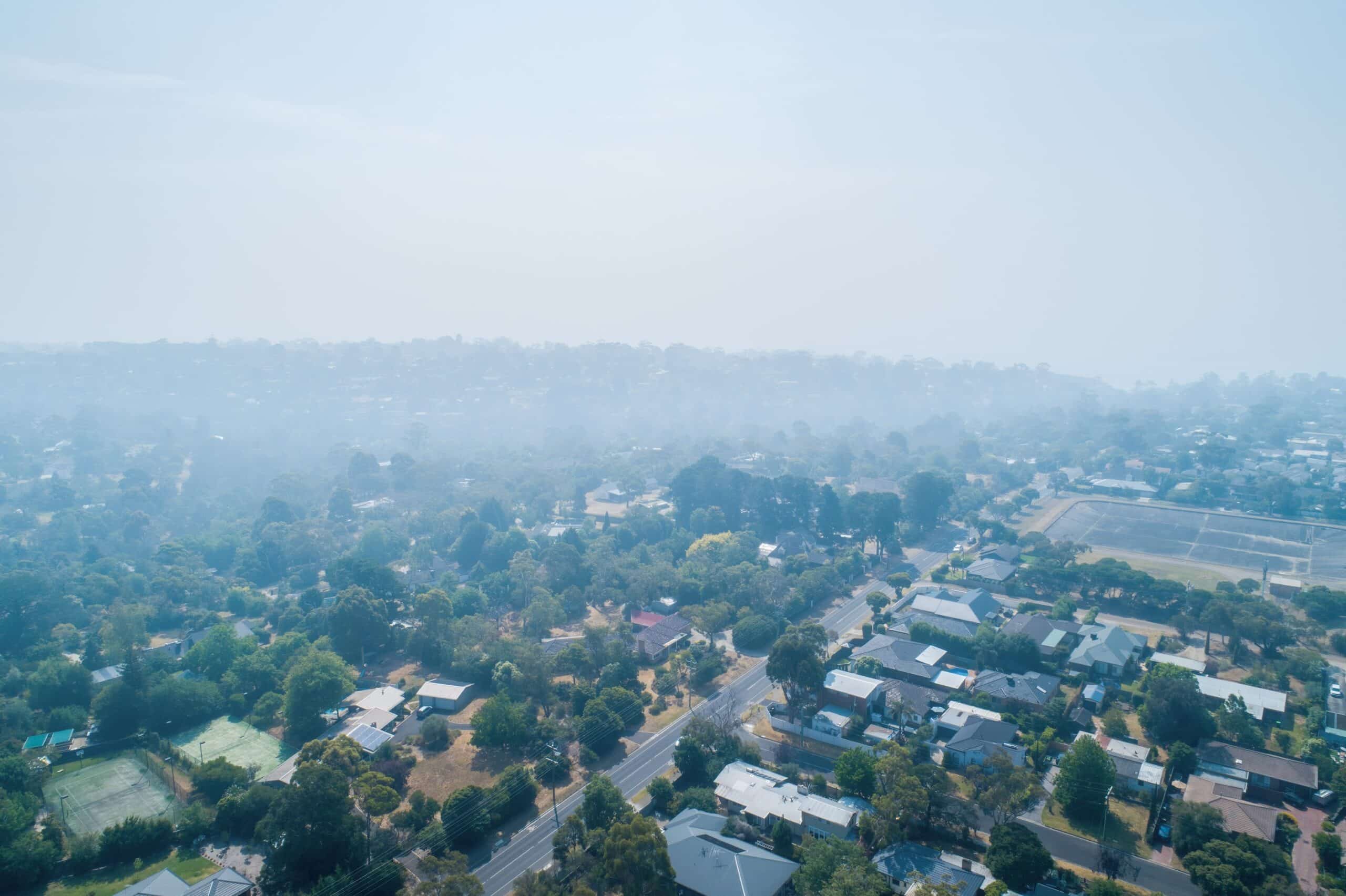Modern air conditioners serve several different functions. Although people value this equipment for keeping their living environments comfortably cool, air conditioners also help regulate indoor humidity and improve indoor air quality (IAQ). Best of all, you can continue using your air conditioner during wildfire season to minimize the impact that smoke has on your home. Following are six tips for getting the most from this equipment without causing any undue wear.
1. Upgrade Your Air Conditioner’s Air Filters
The effectiveness and efficiency of your HVAC system is largely reliant upon its air filters. This is especially true when it comes to maintaining an acceptably high IAQ. During the fire season, you’ll want to spend a bit more on air filters to get the best-rated options possible. Air filters have a maximum efficiency reporting value or MERV rating. The higher that a filter’s MERV rating is, the more small-sized particulates it can pick up. MERV ratings range between 1-16. Filters with ratings of 11 or above are recommended for homes that are regularly subjected to wildfire smoke. Once you’ve found a suitable option for upgrading your air conditioner’s filter, change the filter out. This is important to do even if you’ve performed a filter change in recent weeks. You want the filter to be clean and absolutely debris-free when wildfire smoke arrives.
2. Fresh Intake Vents Should Be Securely Closed
If your air conditioner is 10 years old or younger, it should have a fresh intake vent. Most modern air conditioners do. When the outside air quality is acceptable, this vent works in conjunction with a passive, filtered vent to promote a high IAQ. However, when smoke enters the area, the outside air is neither fresh nor safe. Closing this vent will help keep polluted air from entering the home. Fresh intake vents have a damper that can easily slide shut. If you’re unsure of where to find the fresh intake vent or its damper, refer to the unit’s user’s manual. You can also have a licensed HVAC technician identify this component and close it for you.
3. Seal Up All Windows and Doors
Closing the fresh intake vent prevents the air conditioner from pulling polluted air from outside. It also means that your air conditioner will be recycling the indoor air continuously. If you’ve got a cracked window or a slightly opened door, changes in indoor air pressure will cause polluted air to flow in. Make sure that all openings are securely shut. If there are gaps or cracks at windows and doors or in other building elements, take steps to seal these off before wildfire smoke arrives. In addition to ensuring clean, safe, indoor air, these efforts will make your entire HVAC system run more efficiently all year long.
4. Choose the High-Efficiency Setting for Your Air Conditioner
As long as the damper to your fresh intake vent is securely shut and you’ve got a new, high-performing air filter in, it should be fine to continue running your air conditioner like you regularly do. However, you should choose the high-efficiency or maximum-efficiency setting for operation. You should also keep the air conditioner running continuously throughout the entire wildfire smoke advisory. The only time that your air conditioner should be turned off when wildfire smoke is present is when there’s an electrical or other emergency that requires you to turn it off.
5. Replace the Air Filter in Your Air Conditioner When the Advisory Lifts
Once the fire advisory has ended, take steps to maintain your air conditioner so that collected debris and residues aren’t subjecting this equipment to undue stress, affecting its performance, or impacting your indoor air quality in a long-term fashion. This starts with another filter change. Using a carbon-infused filter after a fire advisory will help remove any fumes that entered the building. If wildfire smoke was especially heavy, schedule an appointment for professional HVAC maintenance and cleaning as well. These services will ensure that both the indoor compressor and the outdoor condenser are free of dirt, ash, soot, and other accumulations. These services can help minimize the likelihood of progressive, long-term issues such as rust and corrosion.
6. Consider Scheduling Duct Cleaning Services
During your HVAC cleaning and maintenance appointment, ask whether or not your home can benefit from duct cleaning services. If ash, soot, smoke fumes, or other elements have found their way into the air ducts, cleaning them out before returning to regular AC use will prevent them from spreading throughout the system.
A-1 Heating, Air Conditioning & Electric offers reliable heating and cooling services all throughout the greater Meridian and McCall, ID, areas. We also provide top-rated electrical services and an impressive array of air purification products. To have your air conditioner serviced and professionally prepared for the fire season, get in touch with us today.

